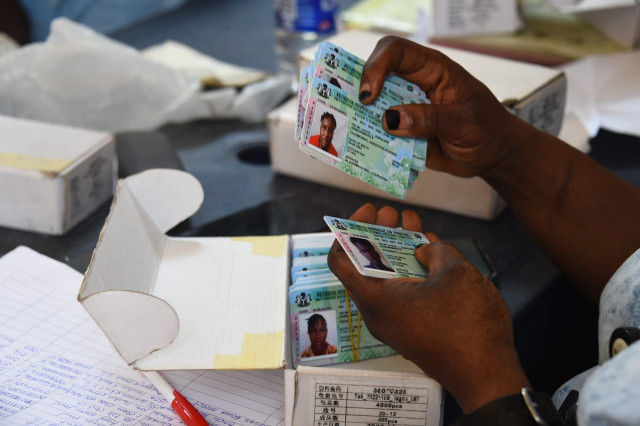In anticipation of the 2027 general elections, the Independent National Electoral Commission (INEC) is suggesting modifications to Nigeria’s electoral system that would remove the President's authority to appoint Resident Electoral Commissioners (RECs).
This proposed alteration would instead empower the commission to make these appointments, under a new title to be referred to as State Directors of Elections.
Additionally, INEC is advocating for the implementation of electronically downloadable voter cards to supplant the existing Permanent Voter Cards (PVCs).
Furthermore, the commission’s Policy and Legal Advocacy Centre (PLAC), along with other stakeholders, has highlighted the urgency for electoral reforms, the establishment of a single-day voting system, and the possibility of voting without a PVC in order to enhance credibility ahead of the 2027 elections.
Specifically, the commission aims to amend Section 14 (3) Paragraph F of the Third Schedule of the Constitution, granting it the authority to appoint and discipline heads of state and FCT offices of INEC.
INEC is also seeking a revision to Section 6 (3) of the Electoral Act 2022 that would grant the commission the power to appoint heads of state and FCT offices.
Special Adviser to the INEC chairman, Mohammad Kuna, made this announcement during a presentation at a retreat with the Joint Committee of the National Assembly on Electoral Matters focused on reforming the electoral legal framework, which took place in Lagos yesterday.
He emphasized that the proposal is vital for fostering transparency, accountability, and efficiency in the electoral process.
The REC oversees the INEC office at the state level and, with assistance from relevant government agencies, is responsible for conducting presidential, National Assembly, governorship, and House of Assembly elections, executing powers delegated by the INEC National Chairman and his 12 commissioners.
Further discussions on stakeholder initiatives for electoral reforms took place yesterday at a two-day retreat attended by the Joint Senate and House of Representatives Committees on Electoral Matters, in collaboration with INEC and with support from PLAC, the UK Foreign, Commonwealth and Development Office (FCDO), and Development Alternatives, Inc. (DAI), in Lagos.
Executive Director of PLAC, Clement Nwankwo, emphasized the importance of implementing a single-day voting system, claiming it could significantly lower the high costs associated with conducting elections in Nigeria.
He pointed out that the cost of executing elections is exorbitant, noting the nearly half a trillion naira currently being allocated for general elections.
He stated that adopting a single-day voting system could markedly reduce these costs, and referenced Ghana as a successful example, asserting that their achievement is not due to a smaller population but rather effective management.
“The cost of elections in this country is too high,” Nwankwo continued. “It is unacceptable that we are budgeting nearly half a trillion naira to conduct a general election when there are ways to significantly lower this figure.”
He also raised concerns regarding the necessity of PVCs, suggesting that effective voter registration and biometric data capture might be sufficient.
The INEC Chairman, Mahmood Yakubu, highlighted the urgency for timely electoral reforms to enable INEC to effectively implement new laws and adequately prepare for the upcoming elections.




















